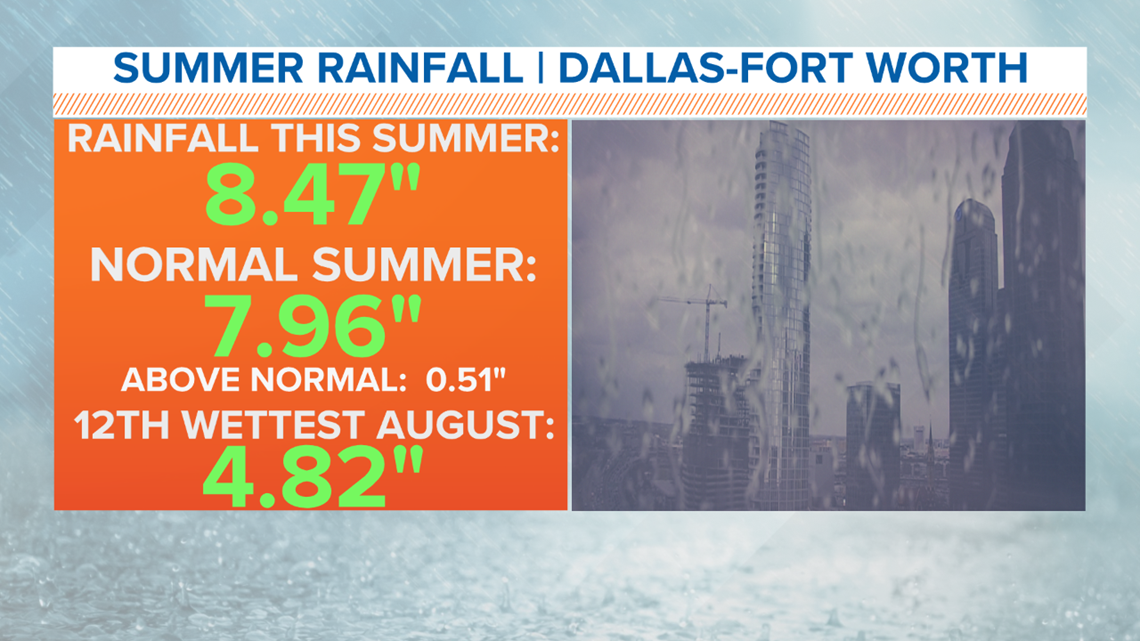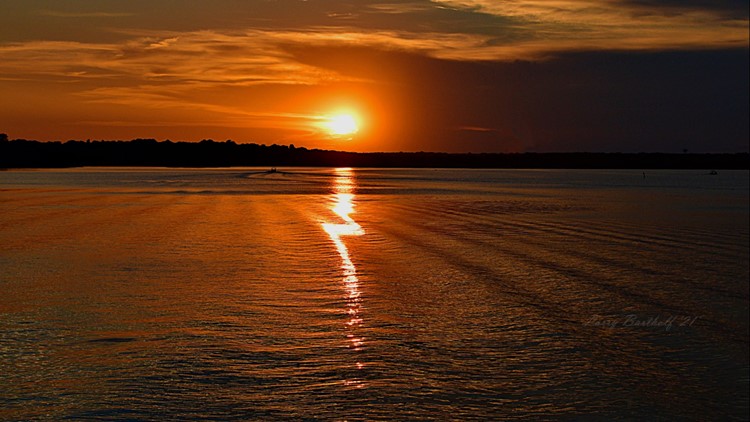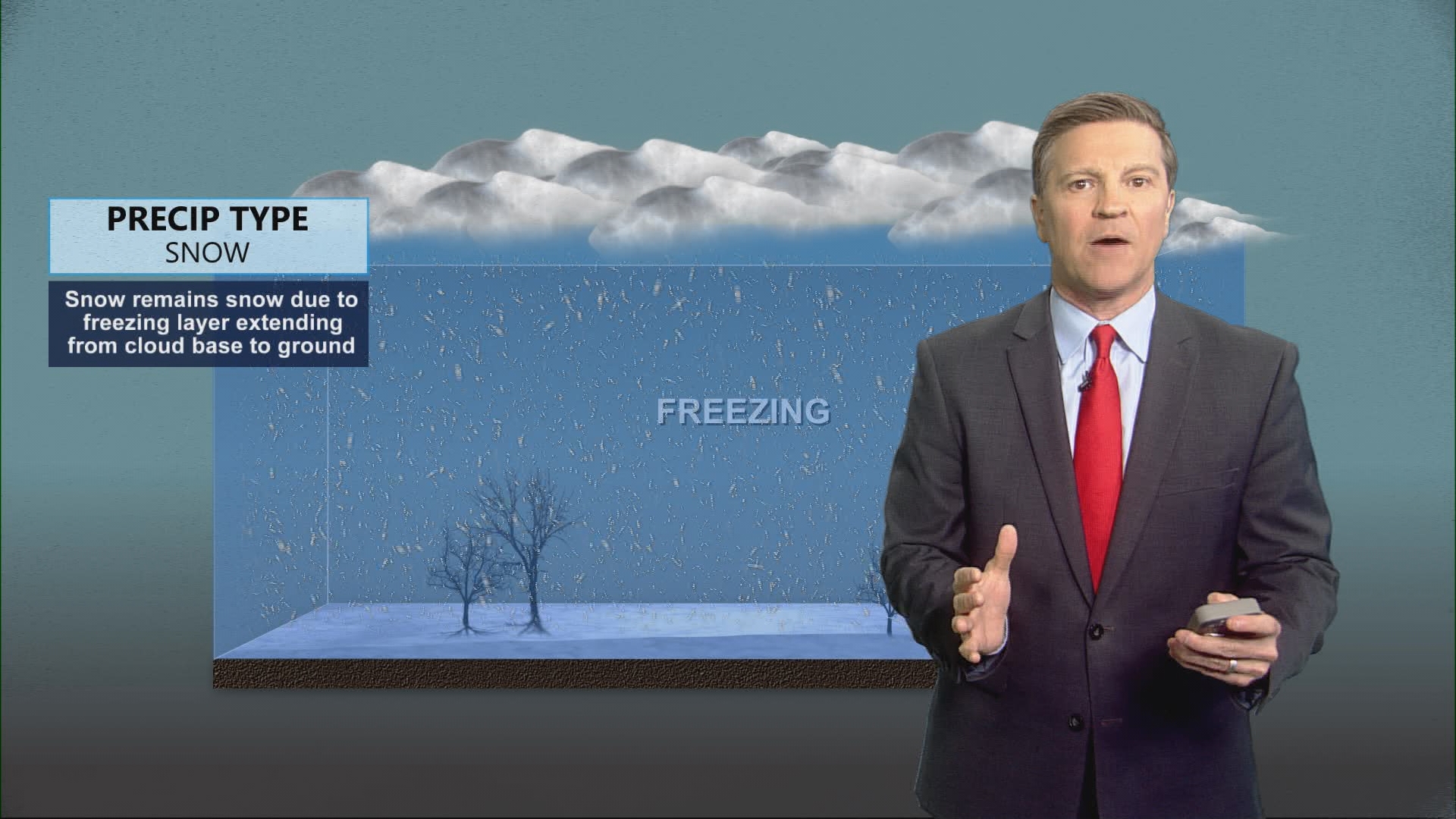DALLAS — Was this summer "bad"?
If you've lived in North Texas for any amount of time, you should know without even looking at the numbers that this summer was fairly mild.
If this was your first summer in North Texas, and you were miserable in the heat, I'm sorry to be the bearer of bad news, but it gets MUCH MUCH worse.
Meteorological summer vs. astronomical summer
Before we talk about what happened this summer, we need to establish the difference between meteorological and astronomical summer.
Because you may be saying, why is he talking about summer ending when the fall equinox isn't until Sept. 22?
The reason is meteorological summer consists of the months of June, July, and August. September 1st is the start of fall according to meteorologists.
The reason this is done is it helps keep stats more organized, it follows the yearly temperature cycle more closely, and the seasons are more consistent lengths.
While it certainly can be hot in September in North Texas (like this week will be), according to meteorologists and for the purposes of this story, summer is over.
Below normal heat this summer
The simplest way of looking at how hot or cool this summer was is taking an average temperature of the whole summer.
(By the way, official temps and stats are taken and recorded from D-FW Airport)
When we do that for this summer, the average temperature came out to 84.0 degrees.
The normal or average temperature for a summer in North Texas is 84.4 degrees.
For the entire summer North Texas was 0.4 degrees below normal.
That is not a ton, but is still below normal.
If you were wondering, last summer was only 0.1 degrees above normal. And the summer of 2019 was 0.4 degrees below normal as well. The last summer with well above normal temps was 2018 when the summer was 2.2 degrees above normal.
But you may say, only 0.4 degrees below normal? It really didn't feel that bad. It seems like it should be lower.
A few factors may go into that line of thinking:
1) Heat streaks. When we think of a North Texas summer, our minds typically go to streaks of 100 degree days and constant, oppressive heat. While that certainly can happen, those types of summers are not as frequent, but they are memorable. So we may be comparing this summer to a memorable one vs. a typical one.
2) The triple digits. There's something captivating about the triple digits. Triple digit heat is much more exciting than 99 degree heat, when in all actuality you really cannot tell the difference between 99 and 100 degrees. This summer we ended up with well below normal triple digit numbers. However, we had plenty of days with highs 97-99 degrees. More on that below.

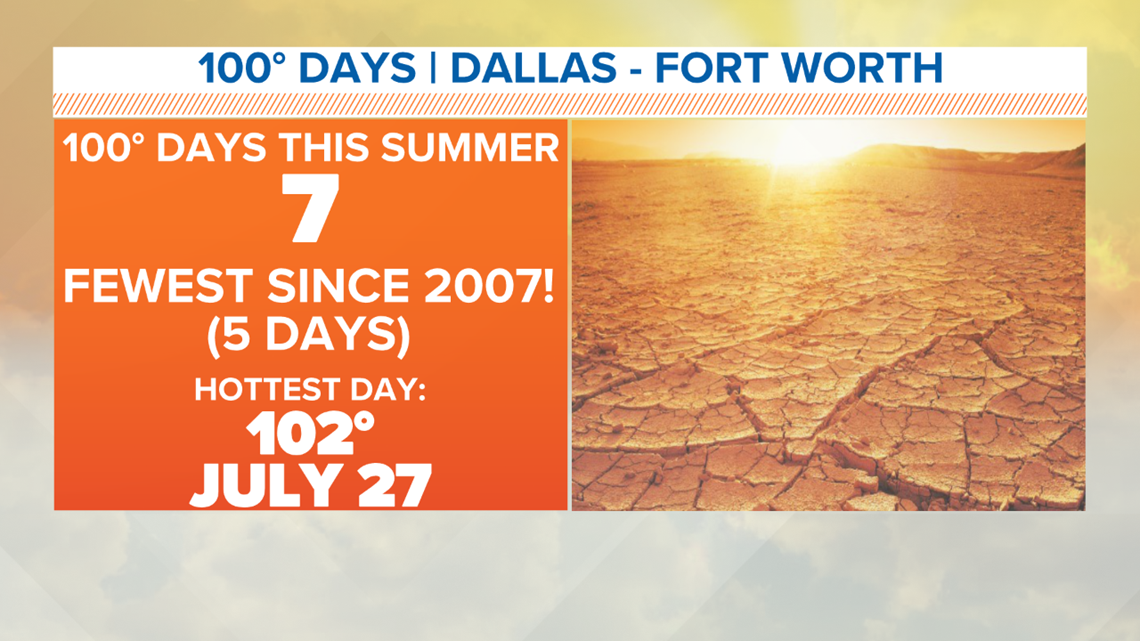
RELATED: Here's how much insurers in Texas made, even after they gave a lot of drivers a pandemic discount
3) Morning temps. When we think of summer, we usually think of hot and humid afternoons. But remember since we are taking an average temp of the whole summer, this includes temperatures in the morning as well. Warmer morning temps contribute to a warmer average temperature. Without throwing too many numbers at you, our morning temps this summer ended up being above normal. This can help explain why the average was 0.4 degrees below normal even though this summer didn't feel that "bad".
If you're still reading at this point, I hope you're still with me. And I understand if your head is foggy at this point.
Triple digits
While it was certainly hot this summer, the triple digits were fairly few in number.
We only had 7 days with triple digit heat.
That's the fewest since 2007!
We average about 18-19 triple digit days a summer and around 20 for the entire year. May and September can contribute a triple digit day or two on average, but remember that's outside of meteorological summer.
This September could add to that triple digit number. But when looking at averages, that heat will count toward fall not summer.

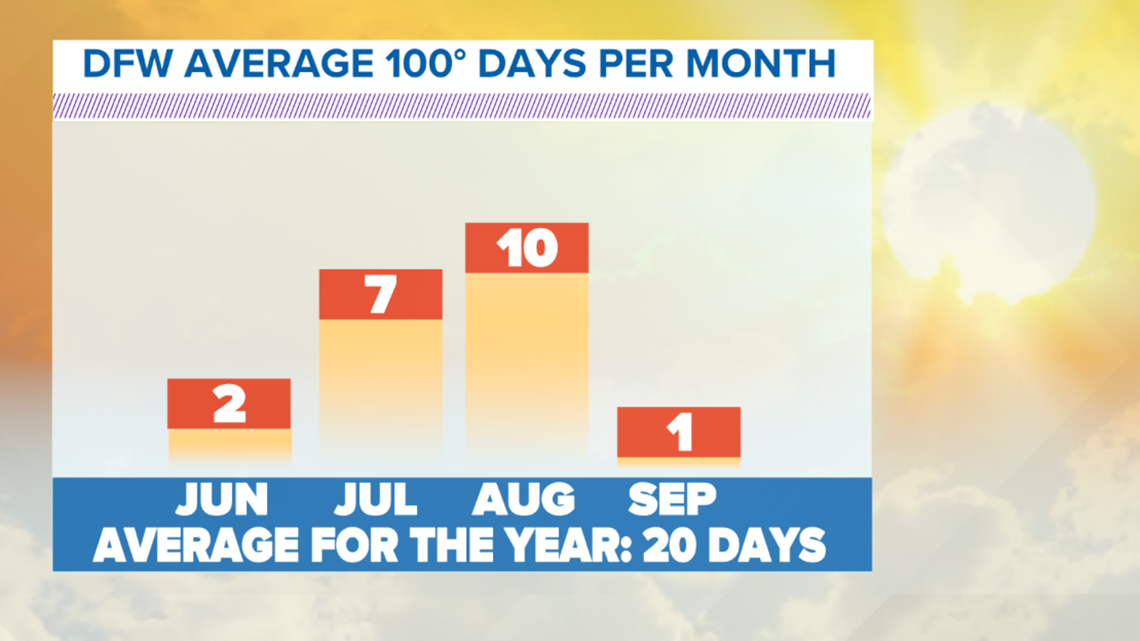
A rainy summer?
This summer ended being a little wetter than normal. So it was rainy. But just how rainy?
For the entire summer, we received 8.47 inches of rain. That is 0.51 inches above normal.
Maybe not as wet as you thought.
August was certainly wet with 4.82 inches of rainfall. That is good for the 12th wettest August on record.
However, June and July were around normal or even below normal for rainfall. So when you combine those months with August, you get an average a little closer to normal than maybe you expected.

